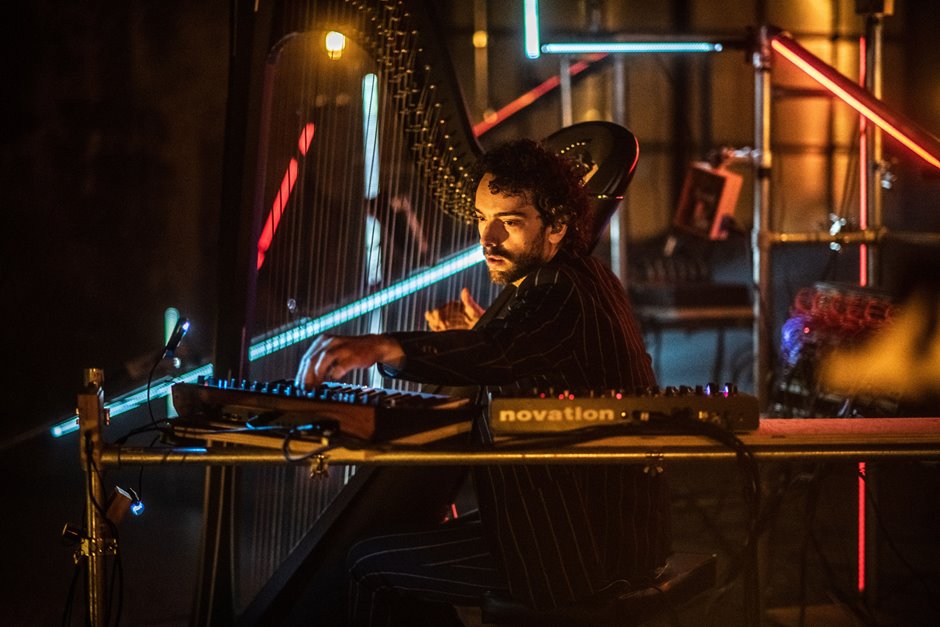Searching for new connections outside the classical music bubbles
Remy van Kesteren
When he was a student, harpist Remy van Kesteren had quite a conservative view on music. For that reason, he now wants to use his fellowship at HKU Utrechts Conversatorium to confront the students who are also stuck in their bubble. ‘I want to stir up a conversation about why they are playing music in the first place, challenge them, and open their eyes to how diverse the musical world can be.’
The why behind your music
With his activist mindset, Van Kesteren was never the easiest student. He too was firmly stuck in his classical music bubble, and would not allow anyone to simply push him out of it. His goal was to play harp in the traditional way. After all, he was educated as a classical musician. After studying and performing around the world, he was eventually confronted with a burning question at the music school in Paris: why was he making music in the first place? ‘I had no answer to it. And that made me think: if I cannot provide a clear answer, then neither am I allowed to take the stage with my music. I’ve spent a long time struggling with this question. Until a friend of mine suggested: “Why don’t you just invent your own music?” So that’s what I started doing, and now I am touring with my robot orchestra. Since I’ve been composing and performing my own music, I feel alive and happy again. And this is exactly the story that I want to tell my students: you must be able to find yourself in the music you’re making!’

Awakening
HKU Utrechts Conservatorium trains students mainly to become creators/performers, while moving away from the strictly traditional music classes more and more. This was already the case when Van Kesteren was still studying there, he emphasises, but still he kept focusing on the classical ‘divine notes’. That all changed when he was asked ‘that one question’. ‘This awoke something inside me that made me think about what gave my music the right to exist. That is why I see it as the most important mission of my fellowship to wake students up, like I was woken up in Paris.
Open-minded
‘The funny thing is: they had asked me the exact same question back at HKU Utrechts Conservatorium. But then I took it as more of an insult. Therefore, I want to approach my fellowship with an open mind, to look at each student individually and see how to effectively stimulate their creativity. Looking back, I would have appreciated it if a professor had guided me in the way I needed as a student. Instead, I've had to travel this road mainly on my own.’
Van Kesteren’s outlook has also been broadened by his new-born daughter. ‘Her mind is wide open! Whatever I let her listen to, she is willing to accept it. The older we get, the more black-and-white our thinking becomes. But still, as humans we have the duty to stay open-minded. And as artists, we also have a duty to help other people keep their eyes open.’